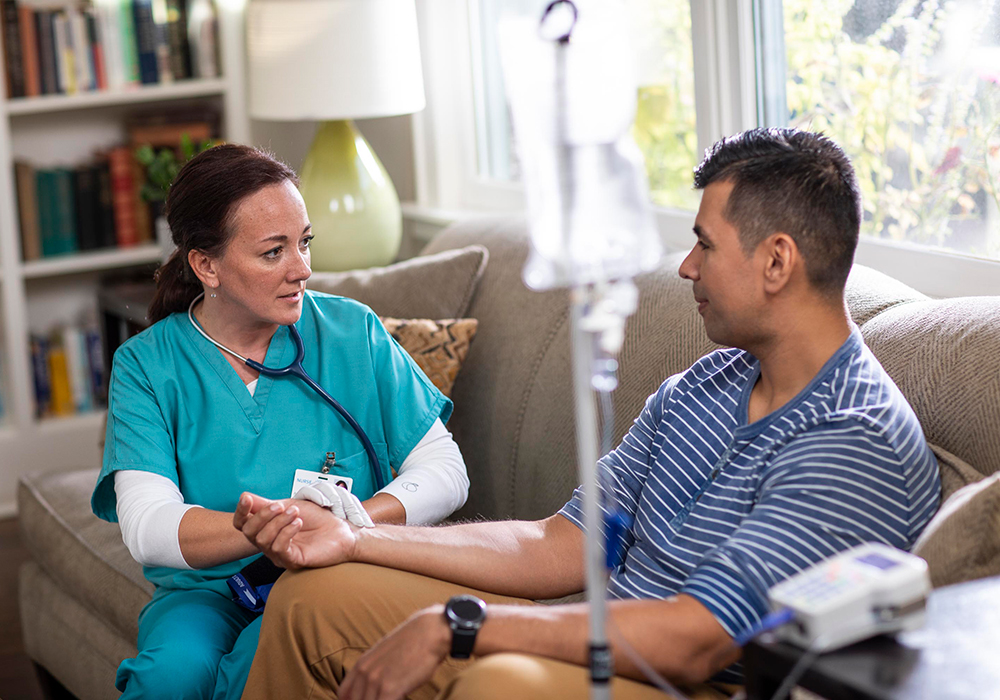As a continuation of my discussion about enabling value-based contracting (VBC) arrangements between life sciences manufacturers and the payer community, I dove into greater detail on the life sciences perspective with Erin Hulbert, the director of the Optum® Life Sciences value-based services team.
You’ve emphasized the importance of starting early. How would a life sciences manufacturer engage with you to get started on developing a value-based program?
Our team is willing to engage with a life sciences partner wherever they are in their journey toward developing a meaningful outcomes-based program.
Often, the first step is engaging in a research study that leverages our de-identified real-world data assets. These include our claims data, structured electronic health record (EHR) data and unstructured EHR notes. We leverage these to characterize what is measurable and what could be used to support a potential value-based contract.
It is important to understand and build trust in the data that’s available today, and to understand what might need to change in the future. This helps build the foundation of insight necessary to engage payers and other stakeholders on the value of your therapy.
Another way we partner in value-based program concept development is through educational and consulting workshops. This helps manufacturers understand the processes and perspectives that health plans and other stakeholders bring to VBC conversations.
All this is part of building a well-thought-out VBC implementation strategy to support contracting, including which specific outcomes will be measured and a protocol for how they will be measured.
It’s important for manufacturers to have this in place at approval to help with early access for their therapy. It also ensures the VBC helps generate compelling real-world evidence that can help prove the cost and quality of the therapy over time.
It is important to understand and build trust in the data that’s available today and to understand what might need to change in the future.
Erin Hulbert
How do we bring this home? How do we, collectively, payers, life sciences manufacturers and Optum, do this well?
We’d love to talk to others, just to share ideas, or to find ways to partner with manufacturers and payers in this space. The promise that gene and cell therapies hold for patients is real, and we are excited to work together to ensure that patients have affordable access to these transformative therapies.
Optum is committed to providing solutions that get the right treatments to the right patients at the right time — to meaningfully and measurably improve clinical outcomes and quality of life for patients.
Together, we can reshape health care for the good of all as we continue to innovate and connect disparate parts of the health system.
Thank you, Erin, for the discussion today.
Optum is committed to our mission, and we have all the core capabilities required to do this well. That includes deep experience using real-world data for health economics and outcomes research expertise, robust data assets and the scale of Optum. This puts us in a unique position to support value-based contracts.

Mari-Pat Kalla
Vice President, Strategy and Product Innovation, Optum
Mari-Pat Kalla, vice president of Strategy and Product Innovation for Optum Life Sciences, has been leading product innovation in the clinical development, scientific consulting and outcomes-based contract space for the past five years.
Prior to joining Optum, Mari-Pat spent 15 years in new product marketing, market development and portfolio management roles in the medical technology and bio technology industries. She has a bachelor’s degree in chemical engineering from the University of Minnesota and an MBA from the UCLA Anderson School at Management.

Erin Hulbert
Director, Value-Based Services, Optum Life Sciences
Related content

Solve contract challenges for gene therapies

Reflections on PCMA's recent Annual Meeting



